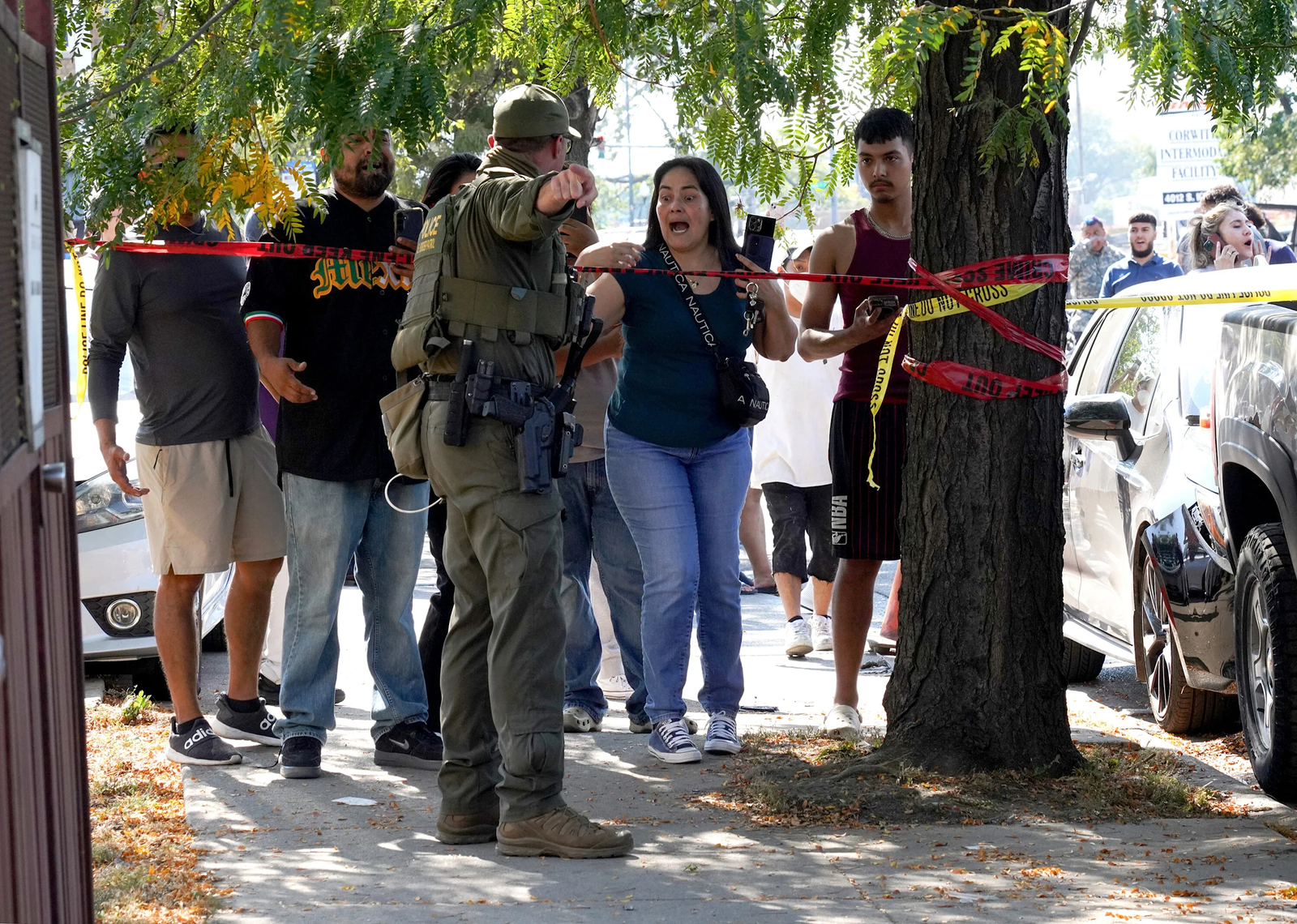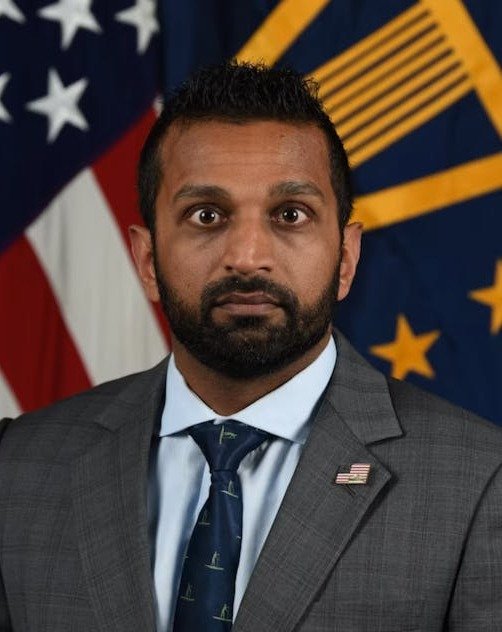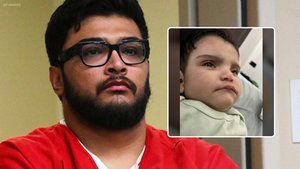By Staff Writer, John Kling
October 6, 2025
M.A.G.A. Daily News
FEDERAL ENFORCEMENT ESCALATION: CHICAGO WOMAN SHOT AS TENSIONS RISE BETWEEN LOCAL AUTHORITIES AND FEDERAL AGENTS
ICE agents attacked fire back shooting suspect. The phrase “federal enforcement escalation” has taken on a chilling new meaning this week after a violent confrontation in Chicago left a woman wounded and a city divided. What began as a federal operation aimed at enforcing immigration law erupted into gunfire, chaos, and political outrage — sparking national debate over the growing tension between federal power and local control. Clearly, the Governor and Mayor love criminals and will do anything to coddle them. Contrastly, Chicago is one of the worst crime ridden cities in the United States and ICE Agents will restore law and order no matter what the Mayor says.
FEDERAL ENFORCEMENT ESCALATION: HOW THE CHICAGO INCIDENT UNFOLDED
In the heart of Chicago’s Brighton Park neighborhood, a team of federal agents found themselves cornered during a tense encounter late Saturday afternoon. According to officials, what started as a routine enforcement mission rapidly devolved into a confrontation when several civilian vehicles blocked the path of a federal unit.
Witnesses reported that the agents were surrounded by multiple vehicles, creating a volatile standoff. Moments later, chaos broke loose. An armed woman reportedly attempted to ram a government vehicle — and in the heat of the moment, shots were fired.
The woman, later identified as Marimar Martinez, sustained gunshot injuries but managed to drive herself to a hospital before being taken into custody. Another suspect, Anthony Ruiz, was also detained on-site for allegedly obstructing federal operations.
Federal authorities claim that the agents acted in self-defense after being trapped and threatened. But local witnesses tell a different story — one that paints the scene as a reckless overreaction. This clash of narratives is what fuels the ongoing federal enforcement escalation, a theme that now dominates the national conversation. Comparatively, there were many ICE Agents who definatley contradict any bystander who has a bias interpretation of what occurred. The so-called witness was not a victim being rammed by a vehicle, let’s keep it real.
LOCAL OUTRAGE AND THE CRIES OF OVERREACH
As word of the shooting spread through the city, protests erupted almost immediately. Crowds gathered outside government buildings demanding accountability, chanting slogans against what they call a pattern of “militarized policing.” Conversely, the chant was, “Shoot ICE” they’re not telling you that part.
Illinois Governor J.B. Pritzker blasted the federal government for what he described as an “unprovoked use of force in a peaceful community.” His statement declared that “Chicago is not a war zone and should not be treated like one.” For this reason, President Trump sent in the calvary because the Governor apparently does not understand that he governs one of the most violent states in the union. Moreover, it is clear, he hates President Trump and refuses to ask for help or communicate with the Trump administration. Again, the Governor is a fake far left radial lunatic that loves criminals and people are not going to stand for it any longer.
Mayor Brandon Johnson, echoing the sentiment, condemned what he called “heavy-handed federal overreach” that endangers residents. Activists accused agents of bringing border-style tactics into urban communities, sparking fears of unchecked federal intrusion. It could be said that, the mayor who also is a far left radical lunatic loves criminals and is afraid to walk the streets himself without his personal body guards.
The federal enforcement escalation, they argue, is not just a Chicago problem — it’s a national trend that blurs the line between civil order and occupation.
THE FEDERAL SIDE: AGENTS UNDER FIRE, CARTELS, AND SECURITY CLAIMS
Federal agencies, however, stand firm on their justification for the use of force. Officials from the Department of Homeland Security (DHS) claim that their agents were ambushed and faced immediate danger.
Homeland Security Secretary Kristi Noem described Chicago as a “hotbed of organized criminal activity” and insisted that agents are operating under lawful orders to protect themselves and the public. She claimed that criminal groups have been offering cash bounties for attacks on federal officers, citing recent intelligence suggesting cartel involvement in U.S. cities.
Federal spokespeople assert that the federal enforcement escalation is not a political stunt but a necessary response to mounting threats against law enforcement. “When our agents are boxed in and targeted, they will defend themselves,” one official said.
THE BATTLE BETWEEN STATES’ RIGHTS AND FEDERAL AUTHORITY
The Chicago shooting has reignited the broader constitutional debate about the limits of federal power. States like Illinois argue that Washington is stretching its jurisdiction under the guise of “national security,” while conservatives counter that federal intervention is long overdue in cities plagued by crime and sanctuary policies.
This conflict between state sovereignty and federal enforcement escalation is not new — but it’s now unfolding in the public eye with unprecedented intensity. Chicago, already struggling with rising violent crime, finds itself at the crossroads of two competing visions for America’s future: one favoring local autonomy and the other emphasizing centralized enforcement.
Many legal experts warn that these incidents could shape the next major constitutional battle. If cities continue to resist federal orders, future standoffs could become more frequent and more dangerous.
COMMUNITY DIVIDE AND MEDIA FIRESTORM
Across social media and cable news, opinions are sharply divided. Supporters of law enforcement hail the agents as heroes facing impossible odds. Critics, on the other hand, accuse federal forces of using small-scale incidents as justification for broader crackdowns on civil liberties.
Chicago residents, already weary from years of tension between police and the public, are now bracing for another wave of unrest. Local clergy and community leaders are calling for peace but warn that without transparency, trust will continue to erode.
As the story spreads, federal enforcement escalation continues to trend nationwide — becoming both a political lightning rod and a symbolic battleground for the future of American law and order.
THE SILENT COST: TRUST AND ACCOUNTABILITY
While politicians spar and pundits shout, ordinary citizens are left grappling with fear and confusion. The federal agents involved in the shooting remain unidentified pending an internal investigation. The Department of Justice has promised “a full review,” but such assurances rarely satisfy communities that feel targeted.
The core issue — accountability — remains unresolved. When federal agents operate on city streets, who oversees them? Who decides when to pull the trigger? And when mistakes are made, who pays the price?
Without clear answers, federal enforcement escalation risks becoming the new normal — a perpetual justification for increased surveillance, expanded powers, and diminished local oversight.
POLITICAL FALLOUT AND THE ROAD AHEAD
In Washington, the reaction was immediate. Members of Congress are demanding hearings. Some lawmakers are calling for stricter limits on federal enforcement within city limits, while others argue for more resources to back the agents on the ground.
President Donald J. Trump has expressed strong support for the federal officers, stating that “law and order will prevail.” His administration views Chicago as a test case — a model for restoring safety in cities long plagued by crime and political dysfunction.
Democrats, meanwhile, accuse the administration of using force as a campaign tool, calling the situation “a deliberate show of power.” The clash of perspectives has further polarized an already divided nation.
As the midterm season heats up, the term federal enforcement escalation will likely dominate debates, press conferences, and campaign stages.
A CALL TO ACTION FOR AMERICANS
What happened in Chicago is more than a headline — it’s a reflection of where America stands at this pivotal moment. The balance between liberty and security has rarely been more fragile.
Citizens must demand truth, transparency, and accountability from both federal and state authorities. The questions raised by this shooting go to the heart of American democracy. Will federal enforcement continue to expand unchecked, or will local voices push back to restore balance?
M.A.G.A. Daily News invites readers to share their thoughts, eyewitness accounts, and opinions. The discussion surrounding federal enforcement escalation affects every American who values freedom and safety.
To contact the newsroom with comments or information, email Press@MagaDailyNews.com — your voice matters in this national conversation.
THE LAST WORD: A NATION AT A CROSSROAD
The federal enforcement escalation witnessed in Chicago represents more than a single violent encounter. It symbolizes the friction between two visions of governance — one rooted in federal dominance and another anchored in state autonomy and community trust.
As the investigation unfolds, the eyes of the nation remain fixed on Chicago. Whether this becomes a blueprint for future operations or a cautionary tale of federal overreach depends on how America responds today.
Freedom demands vigilance. Accountability demands courage. And truth — now more than ever — demands the attention of every patriot who believes in justice.
For media inquiries, opinions, or submissions, reach out to Press@MagaDailyNews.com.





